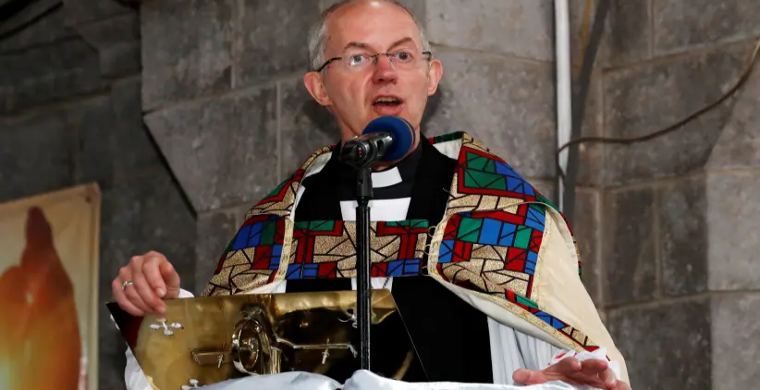Anglican support for Israel's claim to West Bank
It is not annexation as legally defined in international law, and Jewish Israel has far better claims to the land than do Palestinians.
By GERALD MCDERMOTT
The Jerusalem Post
July 12, 2020
Not all Anglicans agree with the Archbishop of Canterbury's recent protest against extending Israeli sovereignty over the part of the West Bank that contains 132 Jewish towns. In a letter he cowrote with Roman Catholic Cardinal Vincent Nichols, Justin Welby objects to the Israeli government's plan "to annex West Bank territory."
He suggests that this would threaten "prospects for peace."
I am an Anglican priest and theologian who thinks Israel is justified in its extension of Israeli sovereignty over this part of the West Bank. It is not annexation as legally defined in international law, and Jewish Israel has far better claims to the land than do Palestinians.
This is not "annexation." According to the Rome Statute of the International Criminal Court, "Annexation by use of force of territory of another state" is a "grave crime of aggression." It means an offensive war against another state in which the state being invaded has its territory seized. Think of Russia's annexation of Crimea in 2014 and Turkey's invasion of Cyprus in 1974. But Israel regained control of the West Bank in 1967 after a defensive war and when the West Bank was not a state.
The modern political status of the West Bank goes back to the 1920 San Remo treaty, which gave the Jewish people a legal right to reconstitute its homeland. The treaty was signed by every one of the 51 members of the League of Nations, which was the international community at that time. The mandate for Palestine (the word then used for the Jewish homeland) was given to Great Britain, and it called for settlement by Jews west of the Jordan River. This land included not only most of what is now Israel proper but also what is now called the West Bank. The San Remo treaty also gave the right of self-determination to Arabs in the mandates for Syria, Lebanon, and Mesopotamia (Iraq). Later, Arabs were given Transjordan as well, which is now the Kingdom of Jordan. The mandate for Palestine was established with the expectation that the Jews there would eventually form a state. Arab interests were to be protected, but no state was envisioned for them in Palestine. Presumably this was because their mandates expected Arab states in Syria, Lebanon, Mesopotamia and Transjordan.
When the United Nations was established after World War II, Article 80 in its charter brought forward all the rights secured by the League of Nations, including the mandate for Palestine, which gave Jews the right to reconstitute their homeland west of the Jordan. The United Nations Partition Plan of 1947 would have given Arabs the right to establish a state in Palestine alongside one for Jews, but Arab rejection of the plan rendered it null and void.
Then when Arabs invaded the new Jewish state (that had been recognized by the UN) in 1948, their war of aggression was illegal under international law. So when Jordan annexed Samaria in 1950, neither the UN nor the Arab League recognized the legality of its annexation. Jordan started calling Samaria the "West Bank," and the new name stuck.
When the Arab states launched another offensive war against Israel in 1967, thus violating international law again, Israel was able to reassert its right to Samaria that the international community had given it at the San Remo Conference in 1920 and then ratified in the mandate for Palestine in 1922. Jordan renounced its claim to Samaria in 1988, and said it was giving the territory to the Palestinians. But, as retired British colonel Richard Kemp has observed, this violated the principle from international law that illegal acts cannot create law.
In short, Israel's so-called "annexation" is not what international law defines as annexation. Furthermore, the West Bank has never been recognized by international authorities as belonging to Arabs. Recent UN resolutions condemning Jewish settlement on the West Bank have never amounted to anything more than recommendations and have never resulted in amendments of existing binding treaties such as the League of Nations' San Remo Resolution or the UN Charter's Article 80 that reinforces the San Remo treaty.
Anglican Archbishop Welby worries that this move by Israel will threaten the peace process. He fails to realize that the greatest impediment to the peace process is not Israel's reassertion of a right long ago granted by international law, but the Palestinian leadership's refusal to acknowledge Israel's right to exist. Add to that his refusal to engage in peace talks at all. Without leaders talking to each other about peace, you cannot have a peace process.
The writer is the retired Anglican chair at Beeson Divinity School and author of Israel Matters.














